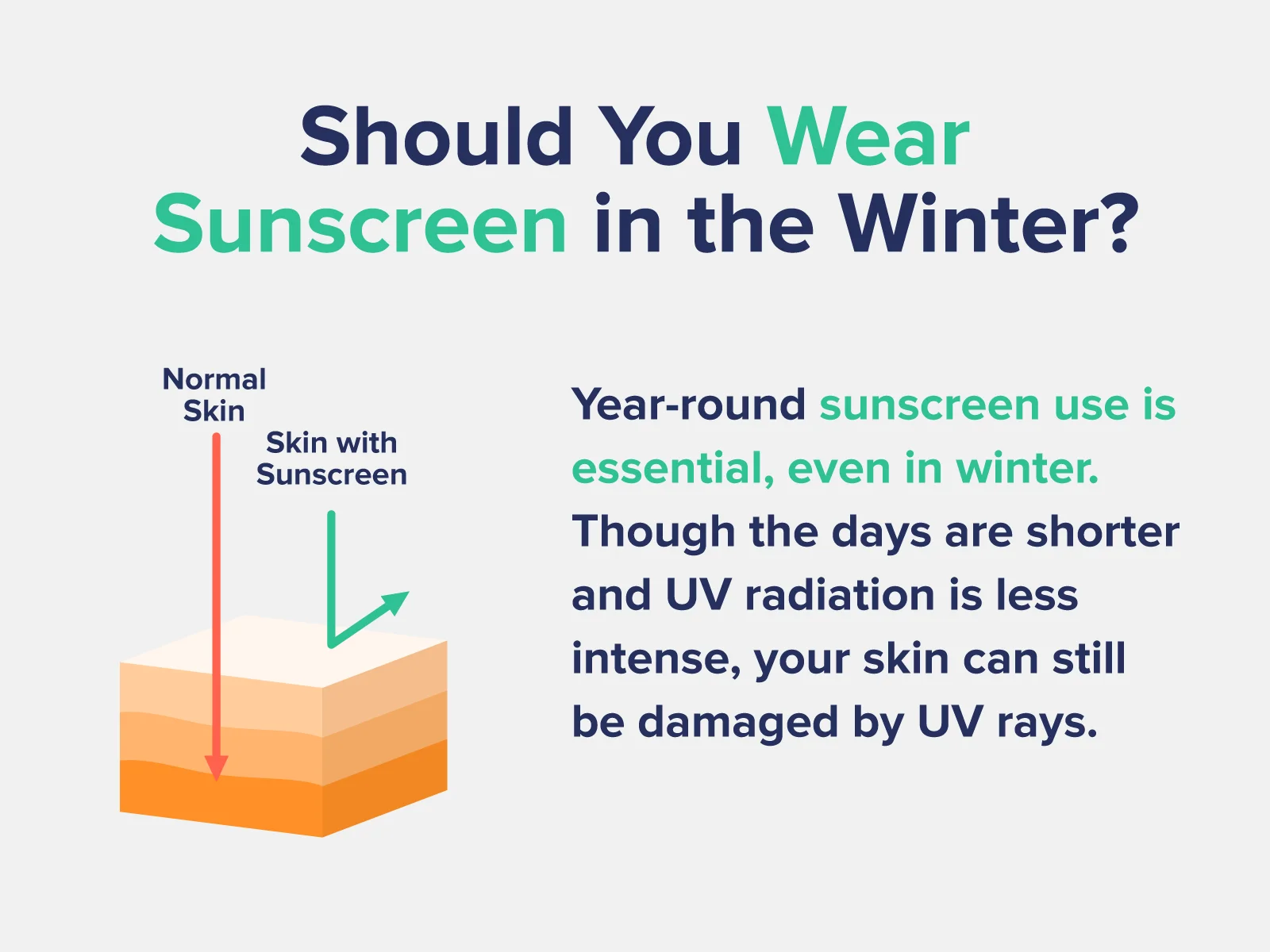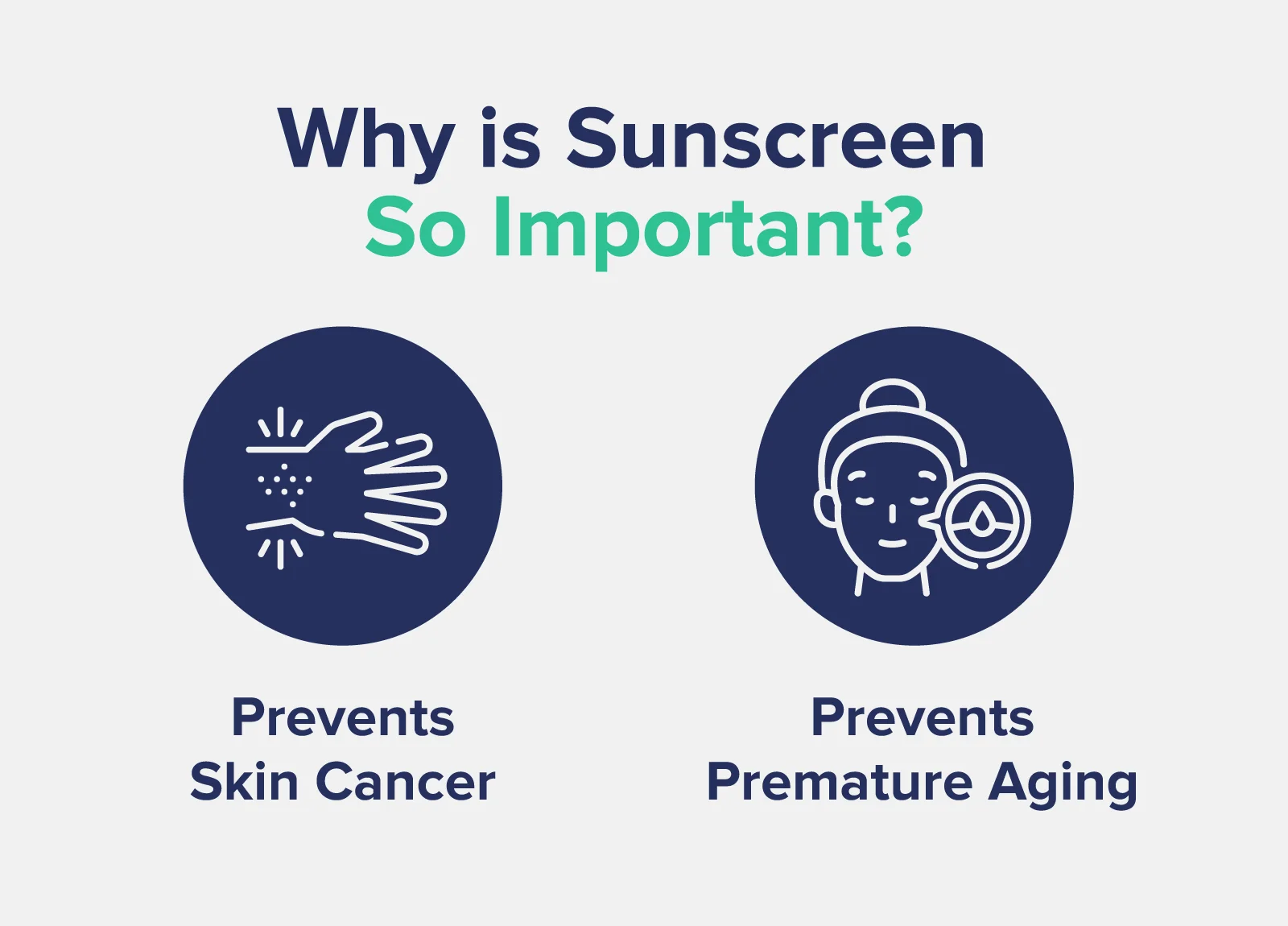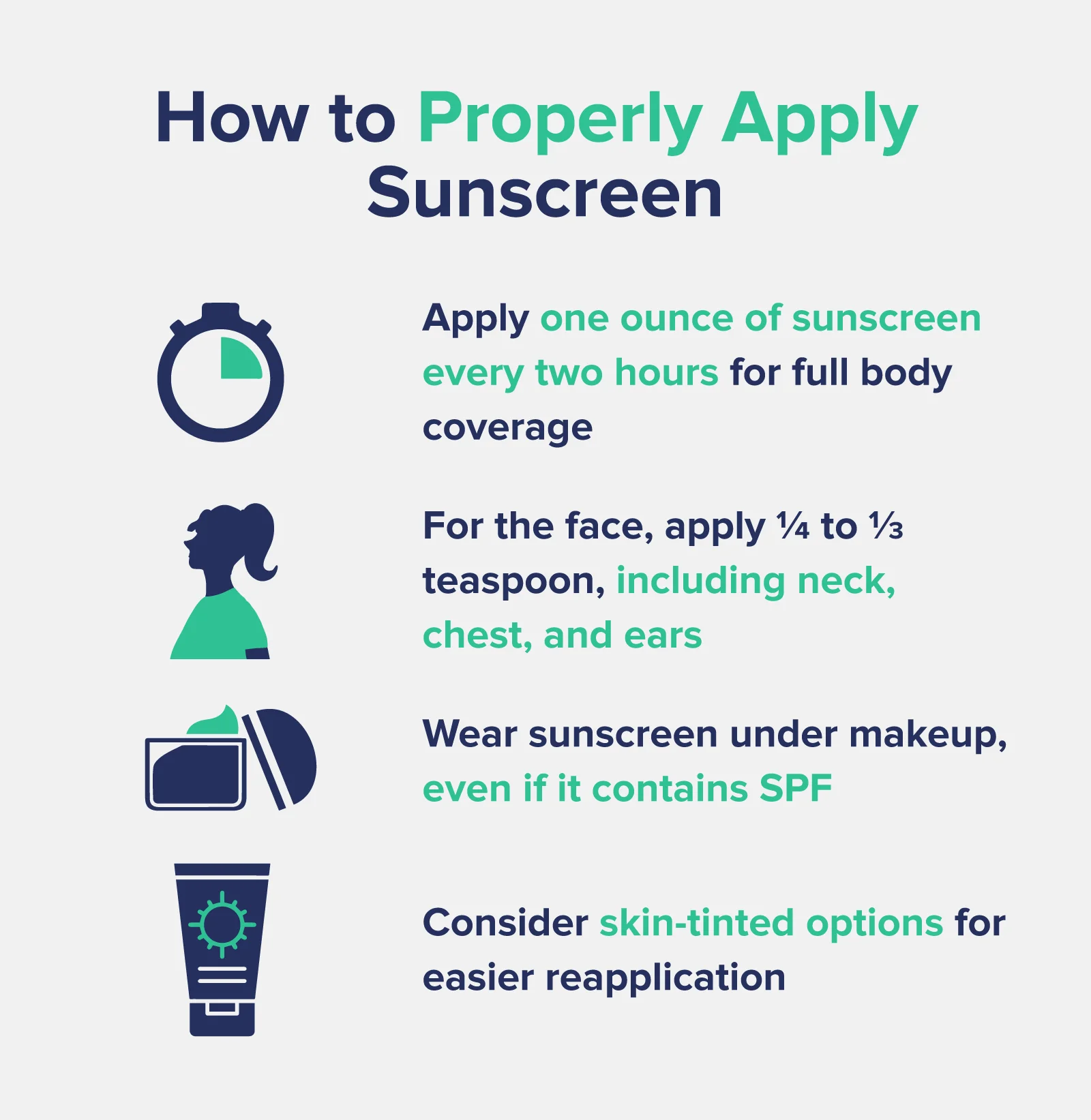Try our favorite, clean protein powder: See our top pick →
Try our favorite, clean protein powder: See our top pick →
Evidence Based Research To fulfill our commitment to bringing our audience accurate and insightful content, our expert writers and medical reviewers rely on carefully curated research.
Read Our Editorial Policy
Everyone knows you should be wearing sunscreen to protect your skin from sunburns––especially in the summer months when we’re outside more frequently and UV radiation is more intense.
But what about in the winter months when we aren’t in the sun as much, or it’s cloudy outside? In this article, we explain why wearing sunscreen in the winter is just as important as wearing it during the summer and how you can protect your skin year-round.
Yes! You still need to wear sunscreen in the winter months to protect your skin year-round.
This applies to both hemispheres, no matter the weather.
In the northern hemisphere, due to the Earth’s tilt away from the sun in the winter, the sun follows a lower path in the sky, the days are shorter, and UV radiation is less intense.
However, you can experience sun damage since UV rays are still reaching the Earth’s surface!

Even if there is cloud cover, this only reduces the sun’s UV radiation by 50%.
This is especially important if you like to partake in winter sports, where you’re typically at higher altitudes.
Here, you are more exposed to the sun’s rays along with the added reflection of the ice and snow while spending time on the slopes.
The far reaches of the Southern Hemisphere also experience “ozone depletion.” This is caused by the intense cold, which leads to chemical reactions in this atmospheric layer in late winter and early spring, thinning the ozone layer.
Most people won’t have to worry about this, but if you are touring Antarctica in the early spring, you might want to pack extra sun protection.
Australians are also at an increased risk of sunburn from UV radiation since there is a pronounced hole in the ozone layer over this area of the planet.
The hole is slowly healing after the ban of ozone-depleting chemicals, but the risks of intense sun damage remain much higher here.
So, to keep your skin healthy and cancer-free, we advise adding sunscreen to your winter skincare routine ASAP.
Now you know to wear sunscreen in the winter, but why is it important to wear sunscreen in the first place?
Well, the biggest plus of applying sunscreen regularly is to prevent skin cancer, but the sun’s rays have other damaging effects, too.
One of the main reasons we wear sunscreen is to prevent direct sun exposure, which can cause damage to your skin cells and sunburns.
Sun exposure can lead to premature aging but, most importantly, can also result in skin cancer.
Even if you don’t burn easily, exposure to UV radiation puts you at a higher risk of skin cancer.
Here are some statistics from the Skin Cancer Foundation:
As you can tell by the last statistic, developing skin cancer is not a death sentence.
However, you may have to get surgeries on areas of your skin to remove cancer cells, which can be painful and lead to unsightly scarring.
You may also need to undergo chemotherapy or radiation, and if it’s detected late, it can spread to other areas of your body, causing further complications.
This is why wearing sunscreen can literally be a lifesaver.
While many Western cultures covet tanned and glowing skin, UV rays are no joke.
Your skin health is more important than fleeting fads and vanity. So, skip the tanning beds and opt for a spray tan instead!
On top of the potential cancer risks, sun exposure can also cause skin damage that leads to premature skin aging.
Did you know that up to 90% of visible signs of aging are actually due to sun exposure?
This happens because the DNA in the cells changes as skin cells are exposed to UV radiation.
UV radiation can also damage collagen and elastin in your face. This can decrease the elasticity and thickness of the skin, causing wrinkles.
Sun exposure can also lead to age spots and melasma, as some cells may overproduce melanin in an effort to protect you from the harmful rays.
However, with proper protection from the sun, you can prevent almost all signs of premature aging.

Now that we’ve touted the importance of sunscreen and its benefits, we should explain how it works in the first place.
Sunscreen comes in two types––physical and chemical.
Physical sunscreens contain minerals (usually titanium dioxide or zinc oxide) that are ground into a fine powder and act as a shield on top of your skin that reflects UV rays.
Chemical sunscreens (typically made from organic materials) actually absorb UV rays before they can reach the skin.
No matter which sunscreen you choose, you want a product that can deflect or absorb both UVA and UVB rays. This is called a broad-spectrum sunscreen.
What’s the difference between UVA and UVB rays?
UVA rays:
UVB rays:
By applying a sunscreen that can block both of these types of UV radiation, you can reduce your UV exposure and protect your skin from further damage later in life or before it starts in the first place.
Lastly, you’ll want to make sure you’re wearing the correct level of sun protection factor––aka SPF.
The American Academy of Dermatology (AAD) recommends wearing sunscreen with an SPF of 30 or higher on your face, lips, and body.
Contrary to popular belief, a higher SPF does not mean you can stay out in the sun longer without reapplying. It just means that the sunscreen is a bit stronger and can compensate for ill application of sunscreen.
So what is the right way to apply sunscreen?
As sun protection is probably one of the most underrated aspects of skin care, not many people know how to properly apply sunscreen for total sun protection.
Unfortunately, wearing sunscreen isn’t as simple as applying a dot or two to your cheeks and nose and calling it a day.
If you really want to protect yourself from UV damage, the AAD recommends applying at least one ounce of sunscreen––the equivalent of a shot glass––to cover your face and body and reapply every two hours.
Counter to what some online gurus will tell you, only about ¼ to a ⅓ of a teaspoon is needed for the face so long as you are able to cover every inch, including your neck, chest, and ears.
It’s also perfectly fine––even encouraged––to wear sunscreen underneath your makeup. This includes makeup with SPF in it already since you probably aren’t using enough foundation to protect your skin fully.
If you wear makeup, it can be annoying to reapply every two hours, but you might be able to get around this by purchasing a skin-tinted sunscreen that can be regularly reapplied.
While people of color are less prone to sunburns, they need to wear a daily sunscreen, too!
Yes, people of color are less likely to develop skin cancer, but the five-year survival rates are lower for black people (66%) and Hispanics (90%) than white people (99%).
This is partly due to how melanoma develops in those with darker skin tones with acral lentiginous melanoma (ALM), which is found on the palms, soles of the feet, or beneath the nails.

You should wear sunscreen any time you plan to go outdoors and the sun is out. If you work inside or are driving and are exposed to UV rays through glass, you should still wear sunscreen to protect your skin from UVA rays.
You can use any SPF level 30 or higher as long as it is a broad-spectrum, water-resistant sunscreen. This will prevent exposure to both UVA and UVB rays and keep your sunscreen intact even if you sweat or get wet.
The sun in the winter is not necessarily worse for your skin than in other seasons. You may notice you sunburn more easily if you’ve been spending more time indoors and are suddenly outside more (since you might be more pale).
If you are participating in winter sports at a high altitude, you may experience a harsh sunburn from being at a high elevation and due to the reflection of the ice and snow.
Any broad-spectrum sunscreen that is water resistant and SPF 30 or higher will be a good choice for the winter weather. If your skin is particularly sensitive to the sun and you have a pale complexion, you might want to opt for a higher SPF rated 50 and above.
Subscribe now and never miss anything about the topics important to you and your health.